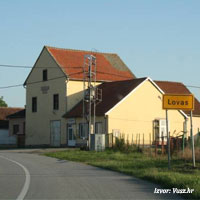On the verdict of the Higher Court in Begrade in the Lovas Case
On June 20, 2019, the Higher Court in Belgrade issued a verdict in which it found the eight indictees guilty of a war crime committed in October 1991 in Lovas (Croatia), and sentenced them from four to eight years in prison. Sentences for five indictees were reduced in relation to those imposed in the first instance trial, while for three other indictees the sentences remained the same. Milan Devčić was sentenced to eight years in prison, Saša Stojanović to seven years in prison, Zoran Kosijer, Željko Krnjajić and Jovan Dimitrijević to six years in prison, Darko Perić and Radovan Vlajković were sentenced to five years in prison, and Radisav Josipović was sentenced to four years in prison. The Humanitarian Law Center (HLC) considers that owing to failures in the work of the Office of the War Crimes Prosecutor (OWCP), only a few perpetrators have been convicted for the crime in Lovas and many victims have been omitted, and that the sentences imposed are too light in relation to the gravity of the crime committed.
The course of the judicial proceedings
Indictment
In the original indictment, the OWCP charged 14 indictees that, during October and November 1991, they had, as members of different formations (the JNA, the “‘Dušan the Great” paramilitary unit, and representatives of newly established local authorities), in the area around and in the village of Lovas, tortured members of the civilian population, wounding or killing many of them, which resulted in the death of a total of 69 civilians, while 12 other civilians suffered severe or light bodily injuries.
This indictment included: Ljuban Devetak, Milan Devčić and Milan Radojčić, as members of the self-established local civil-military authority; Željko Krnjajić, as Commander of the Police Station (PS) Tovarnik; Miodrag Dimitrijević, Darko Perić, Radovan Vlajković and Radisav Josipović, as members of the Territorial Defence (TO) Valjevo, whose units were part of the reorganisation of the Second Proletarian Elite Motorised Brigade (2nd PEMBR) of the JNA; and Petronije Stevanović, Aleksandar Nikolajidis, Dragan Bačić, Zoran Kosijer, Jovan Dimitrijević and Saša Stojanović, as members of the “Dušan the Great” paramilitary unit.
First instance ruling
On 26 June 2012, the Higher Court in Belgrade issued a verdict by which all the indictees were found guilty of the criminal offence of war crimes against civilians as co-perpetrators, and sentenced them to prison sentences ranging from four to twenty years in prison, establishing their responsibility for the death of 40 civilians and the wounding of 11.
Second instance ruling
On December 9, 2013, the Belgrade Court of Appeal, deciding on the appeals of the indictees and their defence attorneys, issued a decision terminating the Supreme Court verdict and referring the case back for the re-trial. As the Belgrade Court of Appeal stated, the First Instance Court did not explain the application of the co-perpetration institute i.e. it did not clearly state what constituted the actual action executed by each of the defendants.
Retrial
The re-trial started on March 4, 2014, during which the two presiding judges were changed. The criminal proceedings were suspended in relation to the indictees Ljuban Devetak, Milan Radojčić, Petronije Stevanović, Dragan Bačić and Aleksandar Nikolajidis, who had all died in the meantime, whereas in relation to the indictee Miodrag Dimitrijević the proceedings were separated, owing to his legal incapacity; because of this, the OWCP had to amend the indictment, which meant that the number of victims from the original 69 was reduced to 28.
HLC findings
Irresponsible performance of the OWCP
This was one of the most complex and most comprehensive procedures conducted before the War Crimes Chamber, as it involved a large number of indictees belonging to various armed formations, as well as several different events, and a large number of victims and witnesses. And while its complexity justifies its longer duration, this procedure was further prolonged by numerous omissions in the work of the OWCP.
The first indictment of the OWCP included 69 deaths, but the OWCP did not provide sufficient valid evidence of the circumstances of their killings. The obligation of the OWCP was to further investigate the facts in regard to the victims’ deaths, and then to charge those responsible, which it failed to do. Instead, the OWCP charged only a small number of indictees and repeatedly changed the indictments, because in the meantime several defendants had died and, consequently, the OWCP also had to reduce the number of victims for whose killing the indictees were charged. Thus, in the last indictment, only eight of the indictees and 28 victims were included.
Selective indictment
The evidence pointed to the responsibility of the Commander of the 2nd Brigade, Colonel Dušan Lončar, who, giving the orders to attack Lovas, said, among other things, that the village “must be cleansed of its hostile population”. Following his order, 22 civilians were killed in the attack on Lovas. However, up to now, the OWCP still has not prosecuted Dušan Lončar, nor any member of the JNA in the chain of command. The HLC filed a criminal complaint against Lončar to the OWCP in 2016; but there is still no information available as to whether the OWCP has acted upon it.
Also, the OWCP’s indictment did not include the crimes of sexual violence. Although witnesses claimed in their testimonies that there were rapes in Lovas during the period covered by the indictment, the OWCP did not investigate those allegations. A similar situation happened also with regard to the expulsion of the Croatian population from Lovas. Namely, even though several witnesses during the proceedings testified that the locals were expelled from Lovas, the OWCP has not investigated that either.
The level of the sentences imposed
When the summaries of the sentences were pronounced, the presiding judge pointed out that the punishment of five defendants had been lowered in relation to the penalties imposed on them in the first instance trial, since the court was limited by the fact that no appeal was lodged against the first-instance verdict by the OWCP, so the court in the repeated proceedings could not impose higher penalties on the indictees than the ones previously pronounced. The court also found that, during the proceedings, the OWCP failed to prove some of the acts that were imputed to some of the accused, which is why these actions were omitted from the verdict, and the sentences adjusted accordingly to the established factual situation.
For this reason, the HLC considers that the greatest responsibility for the failure of the whole procedure, its protraction, the selectivity as to both the accused persons and the events that were covered by the indictment, the reduction of the sentences and the disappointment of the victims’ families who had for many years followed this trial, must fall on the OWCP.
Although the proceedings in this case lasted 11 years, the OWCP over all those years failed to correct numerous shortcomings. Such behaviour can lead to the discouragement of victims’ families from testifying at and following trials in future proceedings, because such behaviour does not help create the conviction that justice for the death of their family members will be met.









